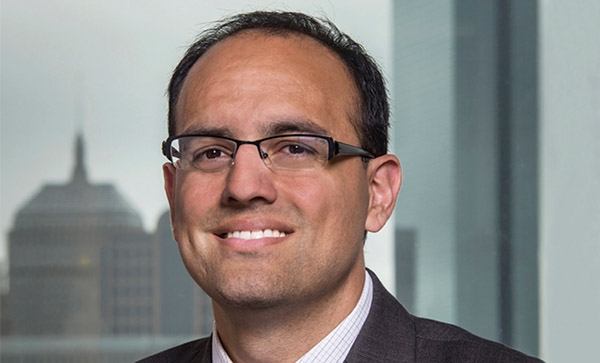MIT Economist Parag Pathak honored by Science News
Named one of 10 young “Scientists to Watch”

"Parag combines leading edge theory with state of the art empirical research methods to make progress on important policy questions. His research doesn't have just the potential to change lives for the better — it has already accomplished that for more than a million elementary and secondary school students."
— Nancy Rose, Professor of Economics, head of MIT Economics
Parag Pathak, the Jane Berkowitz Carlton and Dennis William Carlton Professor of Microeconomics at MIT, has been named by Science News as one of 10 early- and mid-career scientists with great potential to shape the future of their field. Each scientist included in the “SN10” is under 40 and was nominated by a Nobel laureate, a recently elected member of the National Academy of Sciences, or a scientist previously named to the “SN10” list.
"Parag combines leading edge theory with state of the art empirical research methods to make progress on important policy questions," writes Nancy Rose, the Kindelberger Professor of Applied Economics, and head of MIT Economics. "His research doesn't have just the potential to change lives for the better — it has already accomplished that for more than a million elementary and secondary school students. We are excited to see where his contributions will take us next, as he works with colleagues in MIT's School Effectiveness and Inequality Initiative to ensure brighter futures for generations of students."
Nancy Shute, Editor in Chief of Science News, said “We so often cover the results of scientists’ work, but not how they did that work, or what motivates them through the long, often frustrating research process. We’re thrilled to be able to recognize the work of these outstanding scientists, and to give people a glimpse into their remarkable lives.”
Pathak is the founding co-director of the NBER Working Group on Market Design, and founder of MIT's School Effectiveness and Inequality Initiative (SEII), a laboratory focused on education, human capital, and the income distribution. In 2005, based on work in his PhD thesis, Boston's school committee adopted a new mechanism for student placement, citing the desire to make it easier for participants to navigate and to level the playing field for the city's families. He has also helped to design the Chicago, Denver, Newark, New Orleans, New York, and Washington DC school choice systems.
"This is an exciting time for economists who work on market design,” Pathak writes. “It's a great honor to have our work featured like this."
His work on market design and education has been recognized with a Presidential Early Career Award for Scientists and Engineers and an Alfred P. Sloan Fellowship. In 2018, the American Economic Association awarded him the John Bates Clark Medal as the best American economist under age 40.
In 2013, he was appointed as Mayor Thomas Menino's chief technical advisor for Boston's student assignment plan. Under his direction, SEII provided a formal analysis of different alternatives, which eventually led to the most significant change in Boston's school choice system since the end of court-ordered busing. In addition to generating academic publications that study, develop, and test different student assignment systems, Pathak's research work has directly affected the lives of over one million public school students.
Pathak also studies K-12 education and urban economics. He has authored leading studies on charter schools, high school reform, selective education, vouchers, and school choice. In urban economics, he has measured the effects of foreclosures on house prices and how the housing market reacted to the end of rent control in Cambridge MA.
Related links
Parag Pathak
SN10 features Parag Pathak
Archive stories
Parag Pathak wins John Bates Clark Medal
MIT economist lauded for work on education, market-design mechanisms.
Studying school quality, to fight inequality
New MIT center examines education and its lifelong effects.
Environmental Solutions Initiative awards seed grants to advance collaborative progress on environmental challenges
Grants of up to $200,000 will fund environmental partnerships over the next two years.
Doctor, doctor: Why the job market for married couples in medicine works well
New study in the growing ‘market design’ field of economics explains how a job-market algorithm helps land couples in the same locations.
Five MIT researchers win presidential early career honors
Jarillo-Herrero, Lu, Pathak, Sinha and Thaler among 96 winners.
Game theory, in the real world
MIT economist Parag Pathak engineers practical solutions to complicated education problems.
Nobody’s home
MIT economist measures how much foreclosures lower housing prices.
Charter schools, studied
MIT economists are trying to learn how and why some Boston charter schools were able to produce stunning results. What they discover could serve as a lesson for America’s struggling public schools.